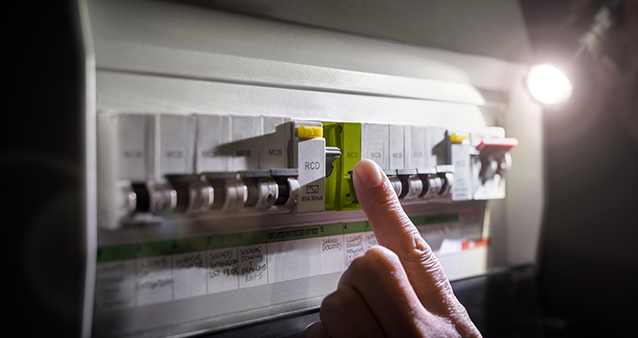Does Insurance Cover Power Grid Collapse?

Let's make sense of what a total electrical grid collapse means for your insurance cover...
It's fairly safe to say that we've all grudgingly become used to loadshedding. There's not a peep in a restaurant or meeting anymore when the lights go out; everyone just carries on talking as the backup power kicks in and life continues as (un)usual. We've become used to it because it's a planned event and we know which schedule our area is on.
When the power goes off for another reason — or doesn't come back on, post-loadshedding - suburban WhatsApp groups light up and plenty of four-letter words are directed at electricity providers. Those issues are generally resolved fairly quickly, but the looming threat that the national electricity grid can't keep up with the country's energy consumption and may collapse completely is one that won't be solved in a hurry. There's been plenty of talk about insurers changing customers' cover in the event of a total grid failure, with Momentum Insure, Santam, Outsurance, Hollard Insurance and Naked Insurance already announcing the exclusion, so let's take a proper look at what's actually different and how it affects you.
Loadshedding vs Power Failure vs Grid Collapse
Let's start by differentiating between loadshedding, a power failure and grid failure. Loadshedding is a controlled interruption of electricity supply to prevent the collapse of the national power grid. A power failure is a failure to provide continuous electricity supply to a specific area due to breakdowns, theft or vandalism. Electrical grid failure is the total or partial loss of power to all or part of the national electricity grid, which could result in a total blackout for weeks and affect municipalities and public infrastructure.

While we experienced over 200 days of loadshedding in 2022 and have had all but three days without loadshedding in 2023 so far, that's nothing compared to the catastrophe we face in the event of a grid collapse.
Covering Total Grid Failure
The 'change' to policyholders' cover to exclude electrical grid failure is a result of a change in definition, which is that grid failure is no longer considered an insured peril. We've put 'change' in inverted commas because rather than changing the terms and conditions of policies, insurers are just being more explicit about what is and isn't covered.
According to Senior Assistant Ombudsman at the Ombudsman for Short-term Insurance, Peter Nkhuna, this shift has been necessitated, because reinsurers, who insure insurance companies against claims, have assessed the risk of a total grid collapse. They determined that the chances of it happening are high enough that if it did and everyone who is insured claimed against it, they'd likely bankrupt the entire local insurance industry. One insurer alone settled over R21 million in claims in the 14 months leading up to 2023, so imagine the scale of claims across all insurers and their ongoing nature as loadshedding continues.
Understand Your Cover
This doesn't mean that all car or Household Insurance claims related to loadshedding and power failures will be rejected, just those in the event of a total grid failure. Power surges, for example, are still covered under specific policy wording, and there are plenty of instances of that happening when the power returns post-loadshedding and fries your air fryer.
What it does mean, however, is that if a loss occurs as a consequence of electrical grid failure, like the deterioration of food in a fridge; water disruption resulting in geyser damage; a sewage system failure or a gas supply failure, these claims will not be covered because electrical grid failure is not an insured peril.
What remains is theft cover — subject to the terms of your policy — if the grid collapses and the backup battery on your alarm system runs flat, although the terms and conditions include the fact that it is a requirement of your policy to take all reasonable steps and precautions to prevent or limit any potential losses.
If you have car insurance and have an accident at a failed traffic light which is out because of a grid failure, you still have cover, but it always helps to compare Car Insurance to make sure you're still getting a good deal and have the right Car or Household Insurance cover. That's why it's so important to understand your policy wording so you know exactly what's covered and what's not. Don't get caught in the dark!
This article is for informational purposes only and should not be construed as financial, legal or medical advice.
Hippo Blog Categories

































